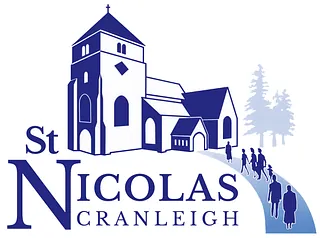02/07/2024 0 Comments
Sermon notes - 2nd June 2024
Sermon notes - 2nd June 2024
# Sermons

Sermon notes - 2nd June 2024
Today’s Gospel is made up of two short stories, which bring to a conclusion a series of episodes, in which Jesus has been getting himself into trouble with the Jewish religious leaders.
Earlier in the Chapter, he has already clashed with them over three different things:
- Over his proclaiming forgiveness of sins.
- Over his keeping company with tax collectors and sinners.
- And over how he and his disciples have not been fasting as they should!
Now he clashes with them again – this time, over his keeping of the Sabbath.
In the first of the two short stories, some Pharisees accuse the disciples, and by association, they accuse Jesus himself, of breaking the Sabbath by picking and eating some heads of grain.
Jewish rabbinic traditions taught that picking or plucking grain, constituted ‘harvesting’, so this would have counted as ‘working on the Sabbath day’!
Jesus responds by recounting how David and his men ate the consecrated bread from the tabernacle when they were hungry and desperate. His point being, that while David did what was technically unlawful, he was not condemned for it, and that such rules should not be applied in the legalistic way that the Pharisees had been doing.
Jesus then points them back to God’s original intention for the Sabbath, as a time to rest with God, and most significantly, he declares himself as ‘Lord of the Sabbath’!
Then, in the second short story, Jesus demonstrates this Lordship, by healing the man with the withered arm.
Jesus challenges them about the purpose of the Sabbath, but they refuse to answer because they want only to use the situation to trap him.
Jesus is angered by the fact that they care more about their religious rules and traditions, than about helping someone in need. And he is further angered by the realisation that they have turned what God intended as a gift for people’s good and benefit, into a pointless burden.
So what does this mean for us? Well, none of this means that we should not take the sabbath seriously as part of our own religious practice!
Those of us who are older than around 40 will all remember how different Sundays were in our younger days – with no shops open, limited serving hours in pubs, no sports events, and still seeing large numbers of people heading to church on a Sunday Morning!
Reflecting back on this, it’s very easy to forget that it was only 30 years ago in 1994 that it became legal for shops to open on a Sunday in the UK! I remember a good friend, at the time, who worked in retail and also sang in his church choir – when he was told he had to work every other Sunday, he gave up his job, rather than miss church every other week!
I can’t help thinking that this has all brought about a terrible erosion of the traditional keeping of Sabbath in our nation, and that is sad! However, as a church we have to respond to the culture in which we live, which in this case means that we have to find new ways of keeping Sabbath rest!
In St Matthew’s Gospel we find Jesus saying, ’Come to me all who are weary and heavy laden, and I will give you rest’.
We all need rest! And this rest to which Jesus refers, is the rest that comes from knowing that we are accepted by God, not because of what we do but simply because of who we are, through faith in Christ and what he has done for us.
It’s the rest that sets us free from striving, and it’s the rest that gives us our sense of identity. It’s a rest which is unconditional and it’s ours for the taking.
To sum up, Jesus is making three points here:
- Firstly that God doesn’t require us to be bound up by rules and regulations that stifle!
- Secondly, that rest is a gift and a reward for the labours that we do.
- And thirdly, that he is Lord of all – and that includes, as I’ve already said, being the Lord of the Sabbath!
If Jesus is our true rest and salvation, each time we practice Sabbath rest, we are declaring our faith and trust in him. We are declaring that our lives, and our worth, are not defined by our work and what we do.
Rather, we are defined by the Lord Jesus and what he has done for us! So, we will trust and follow him. We will worship him, and we will rest in him – in his love, in his goodness, in his grace and in his peace.


Comments